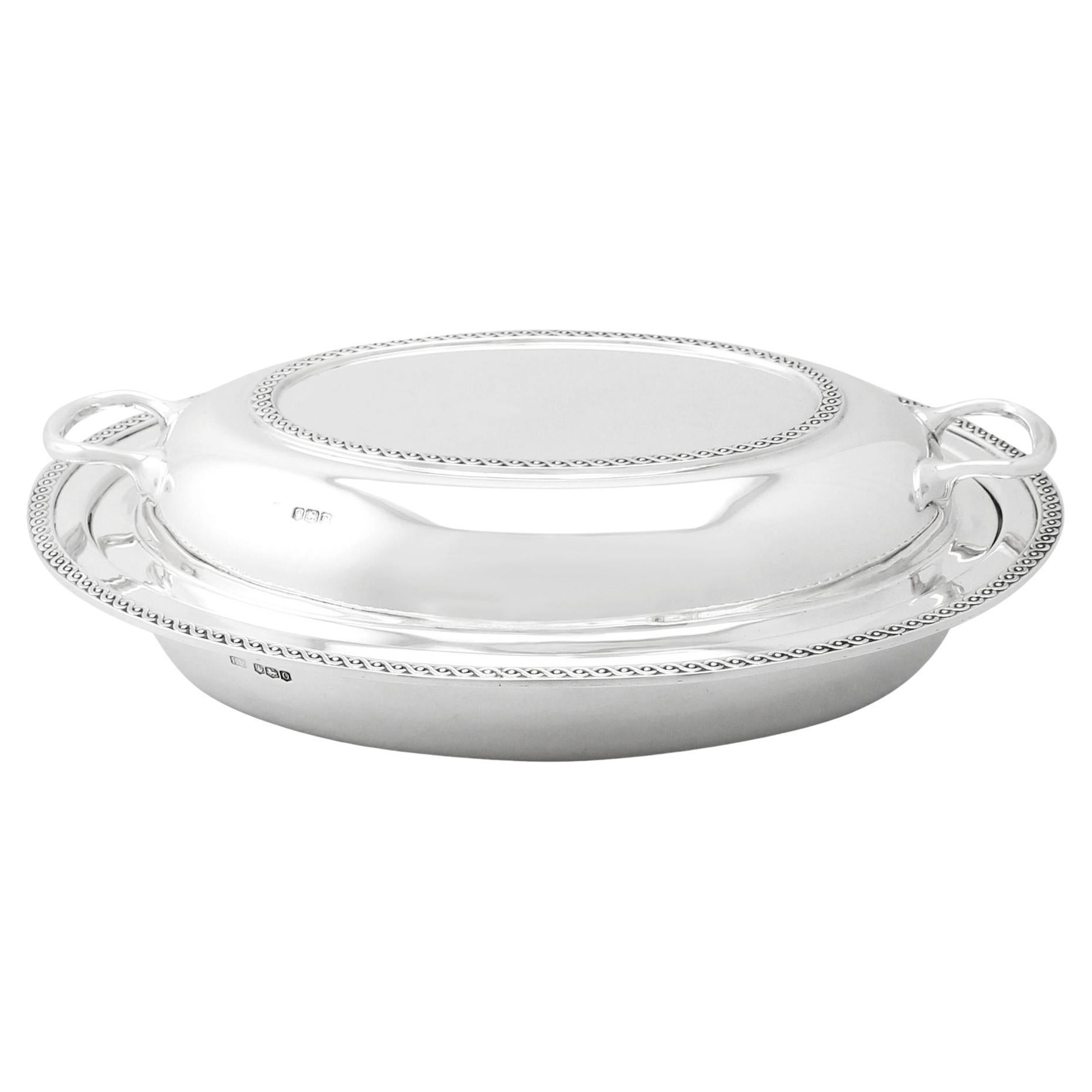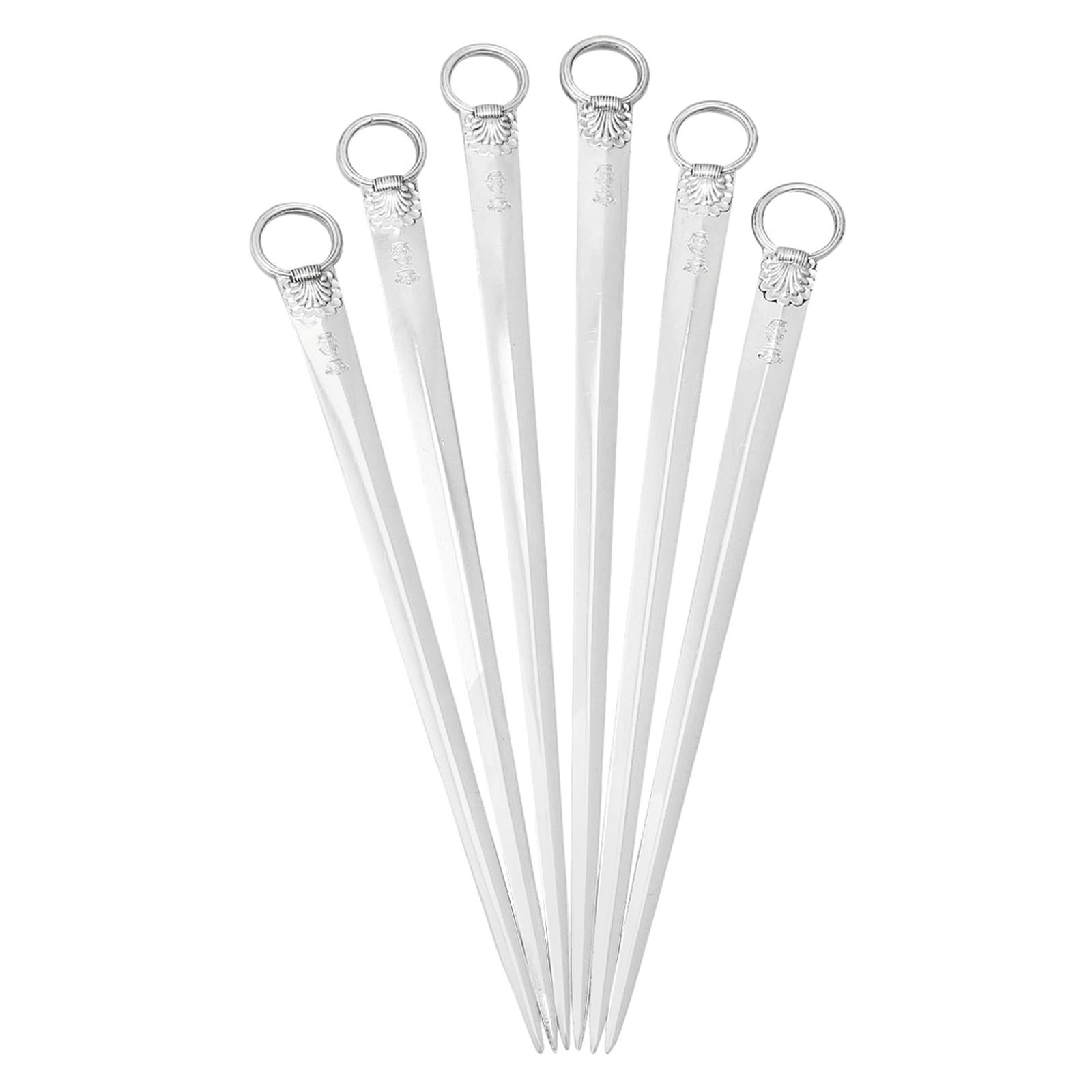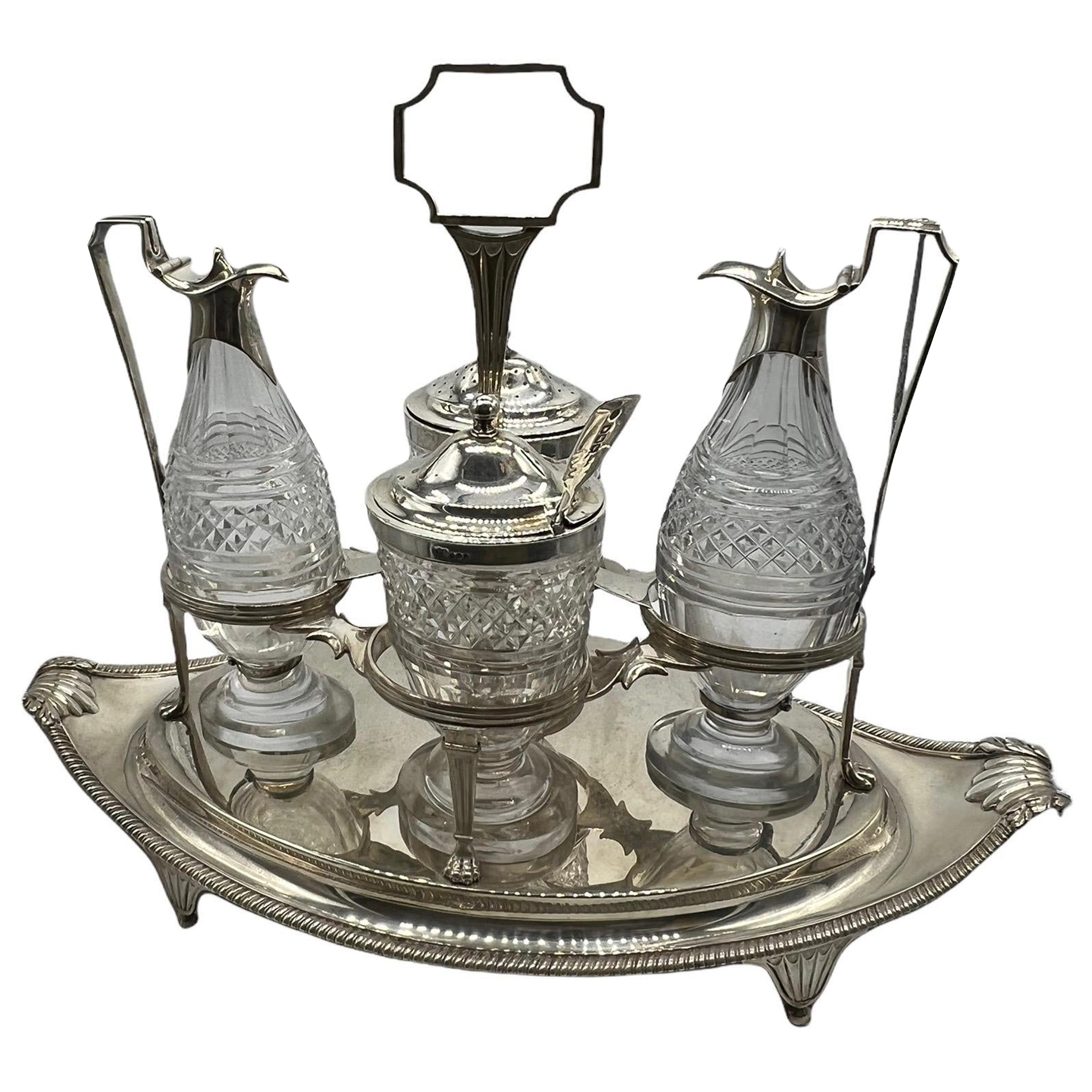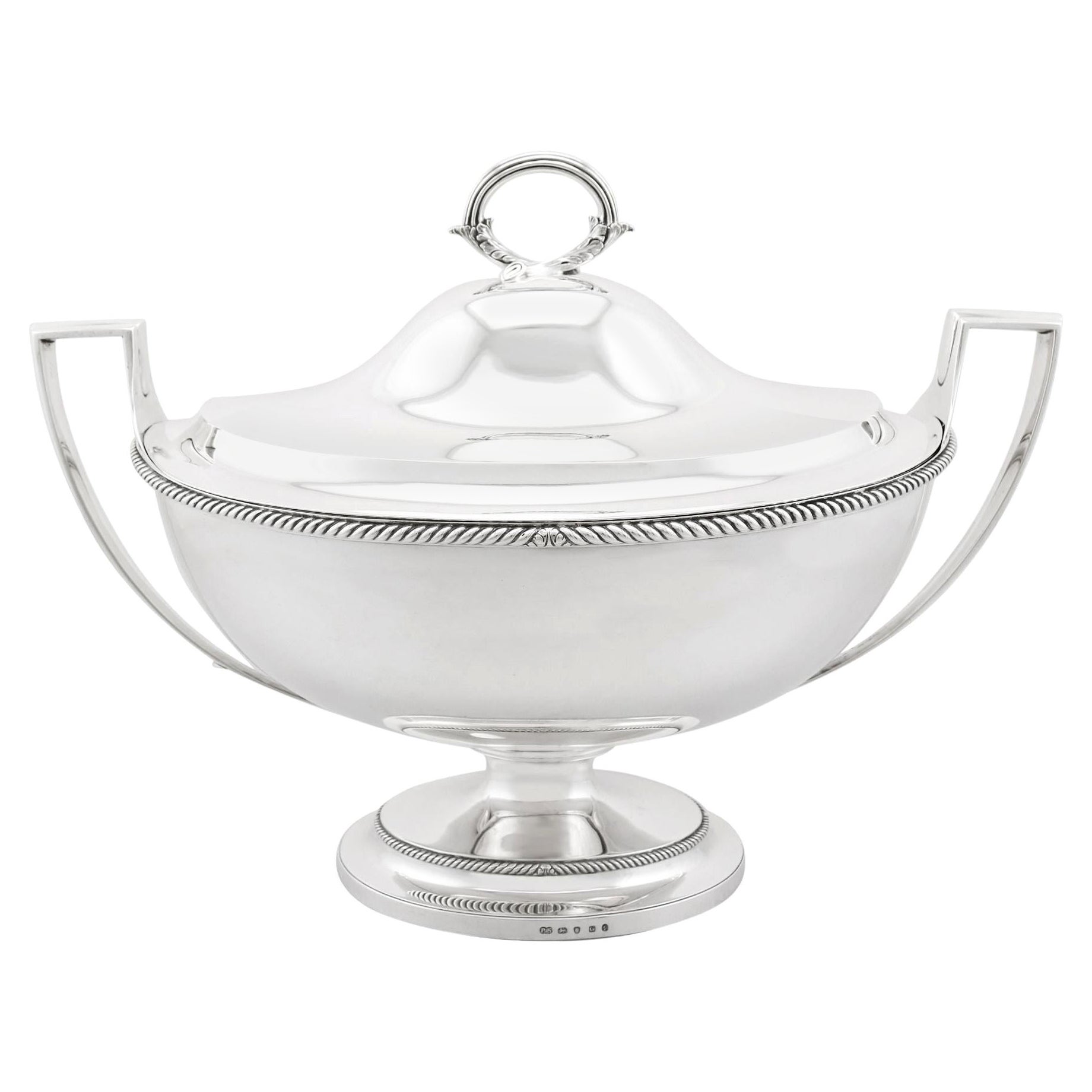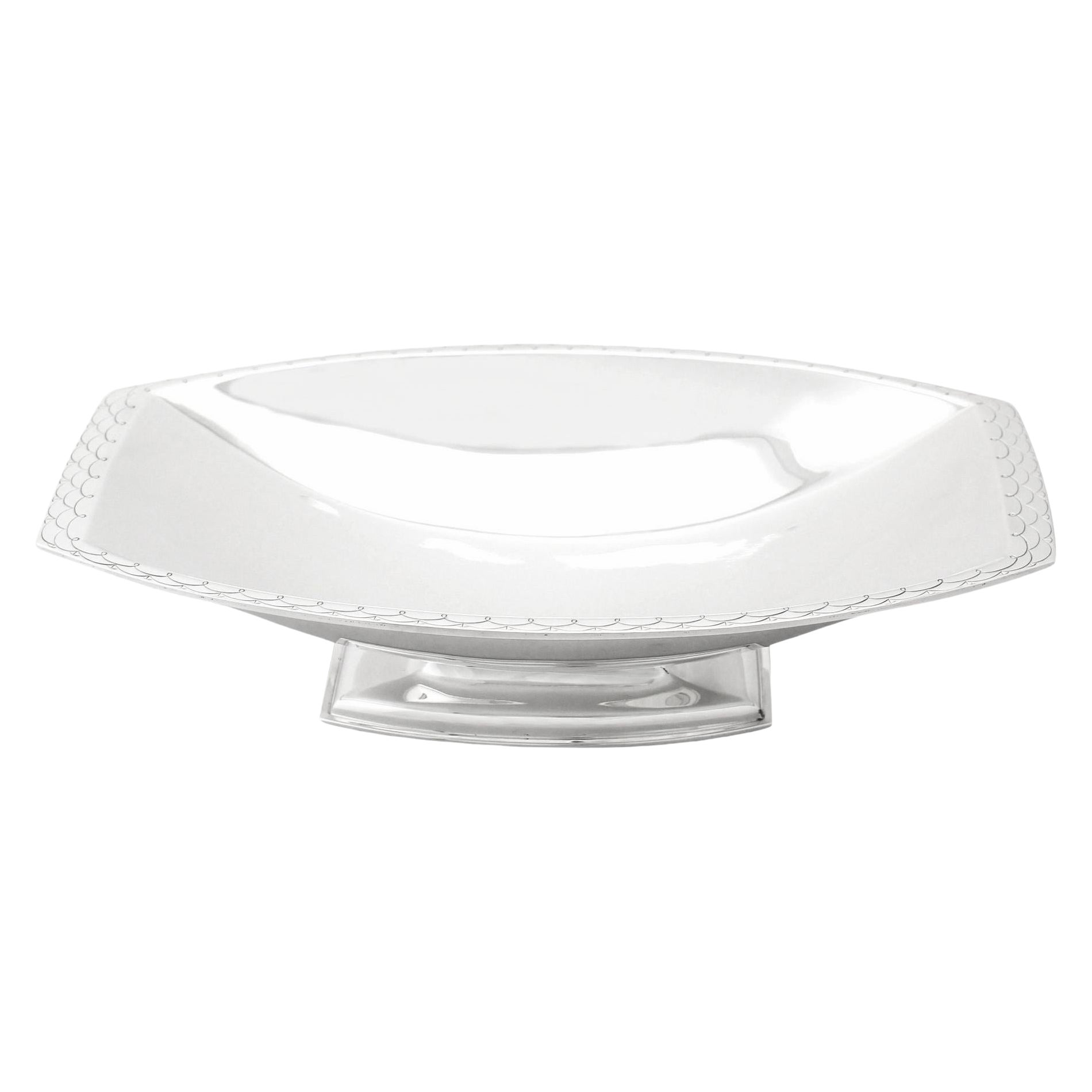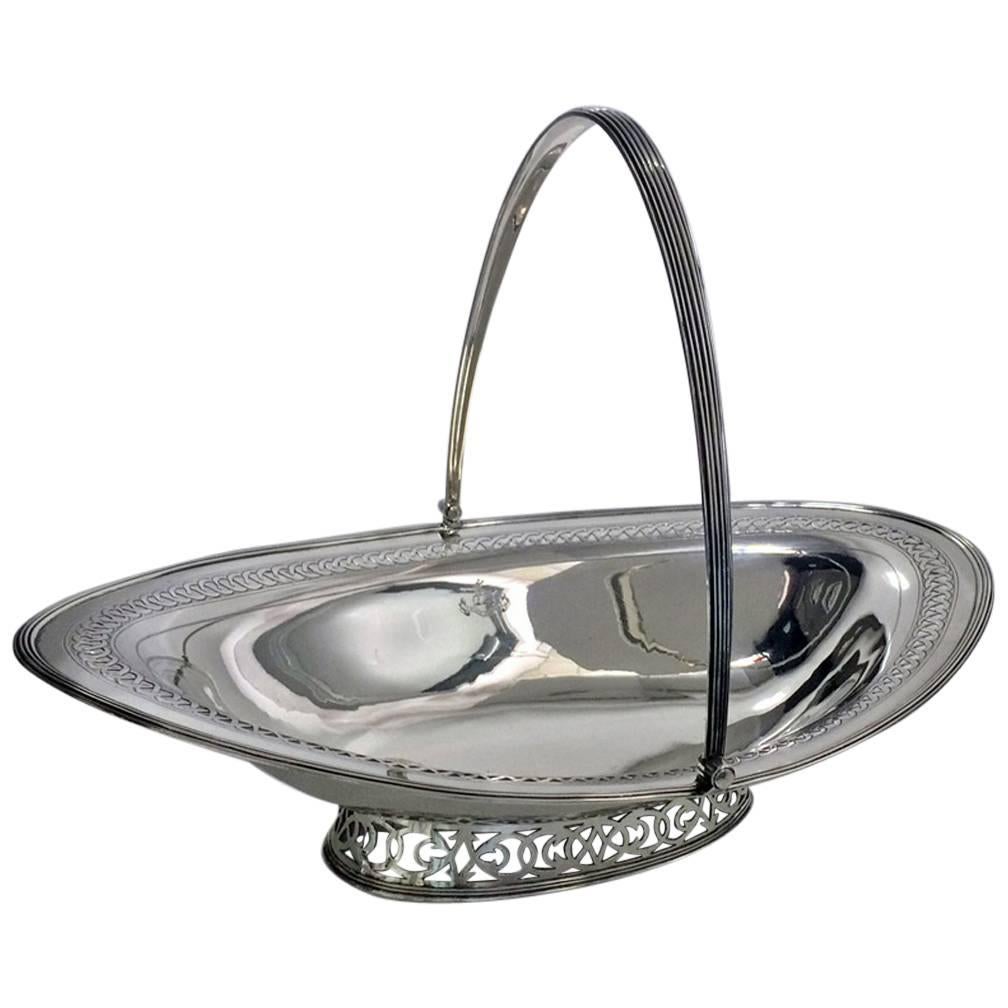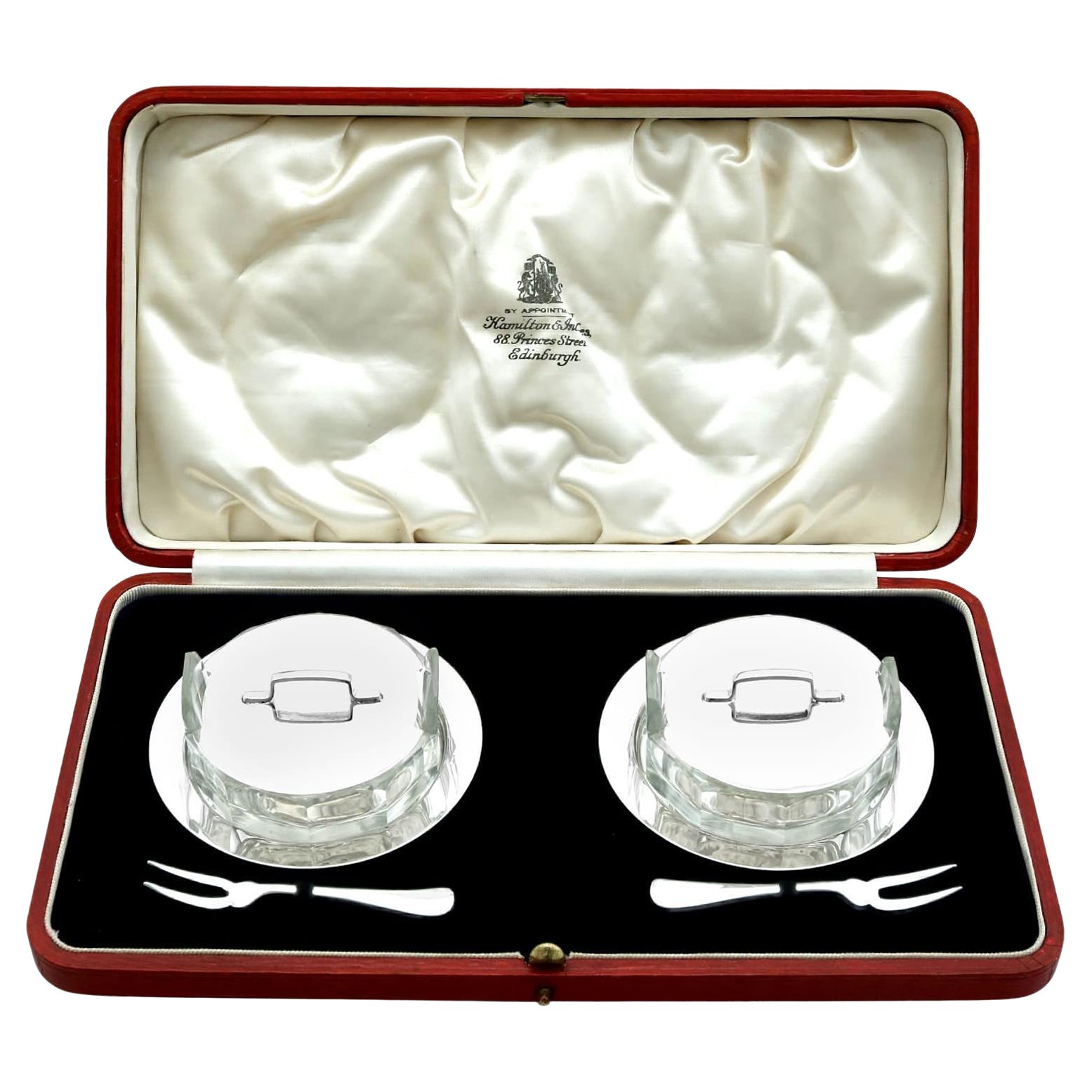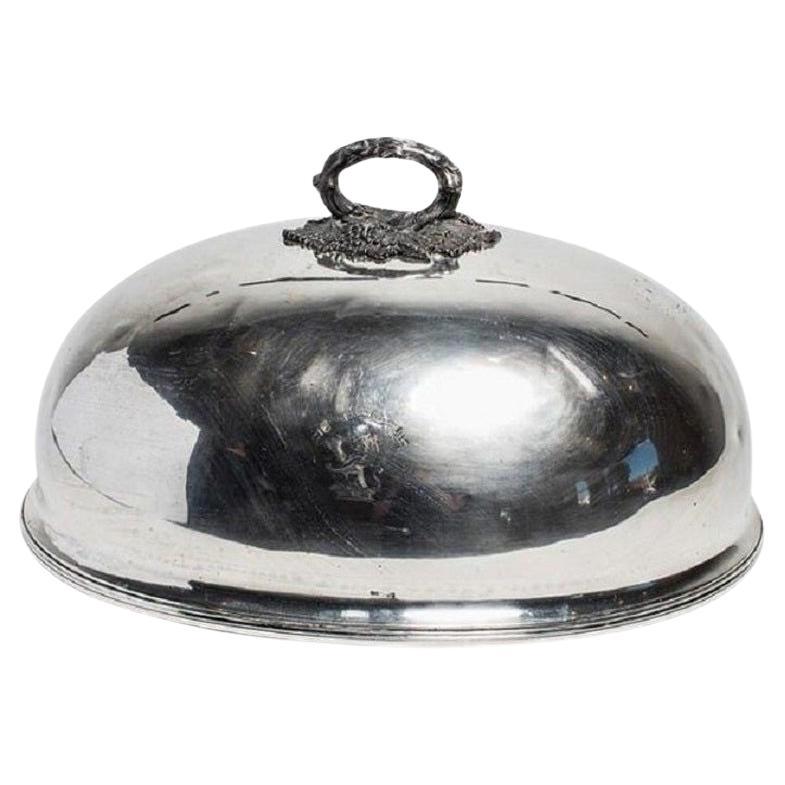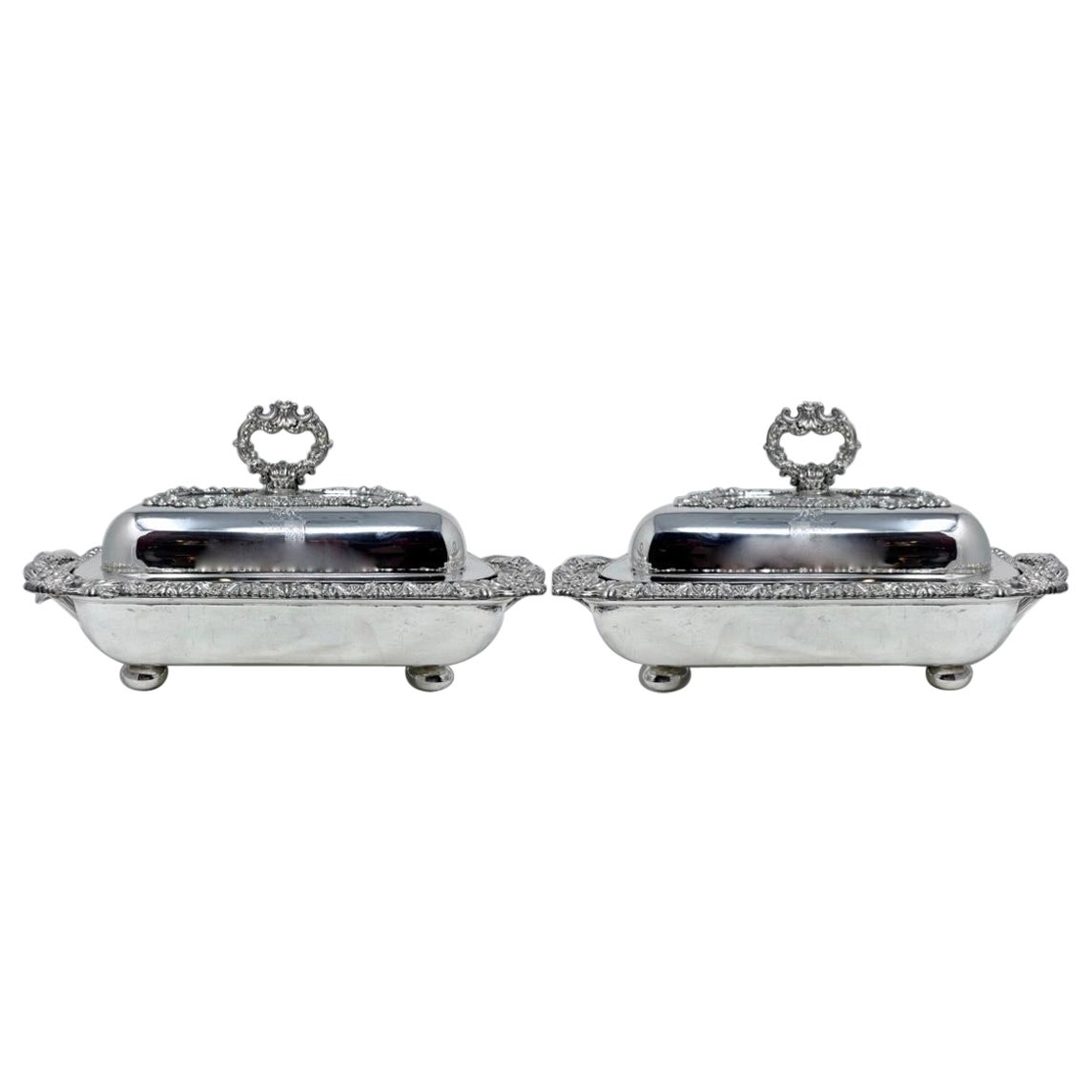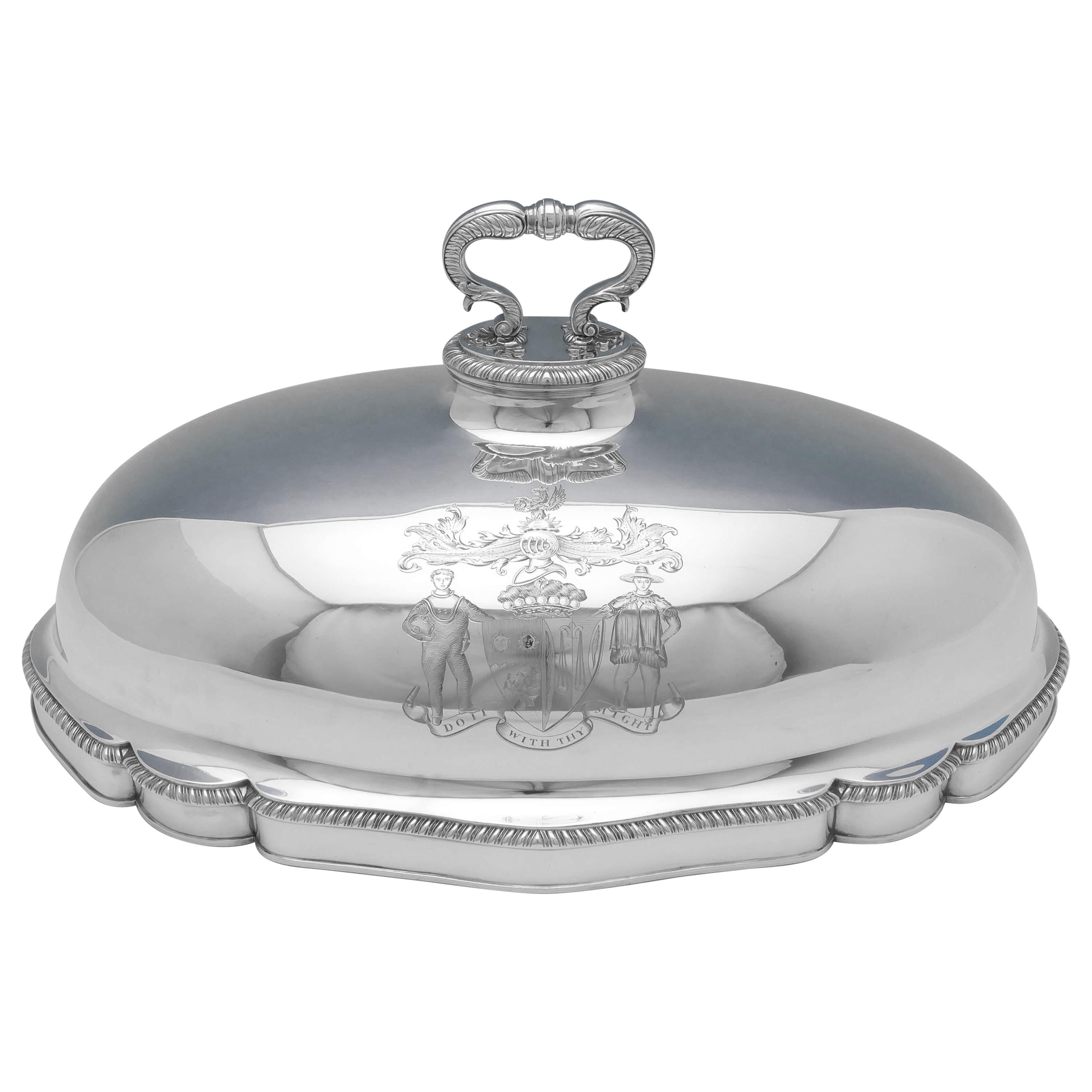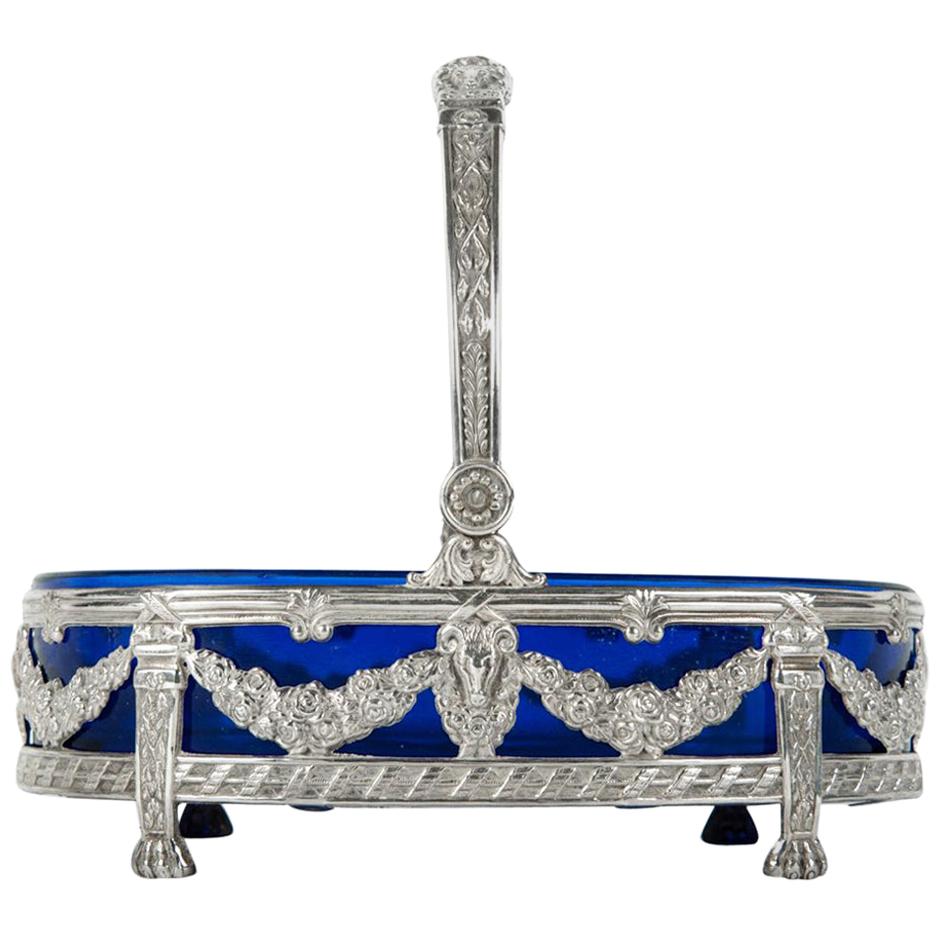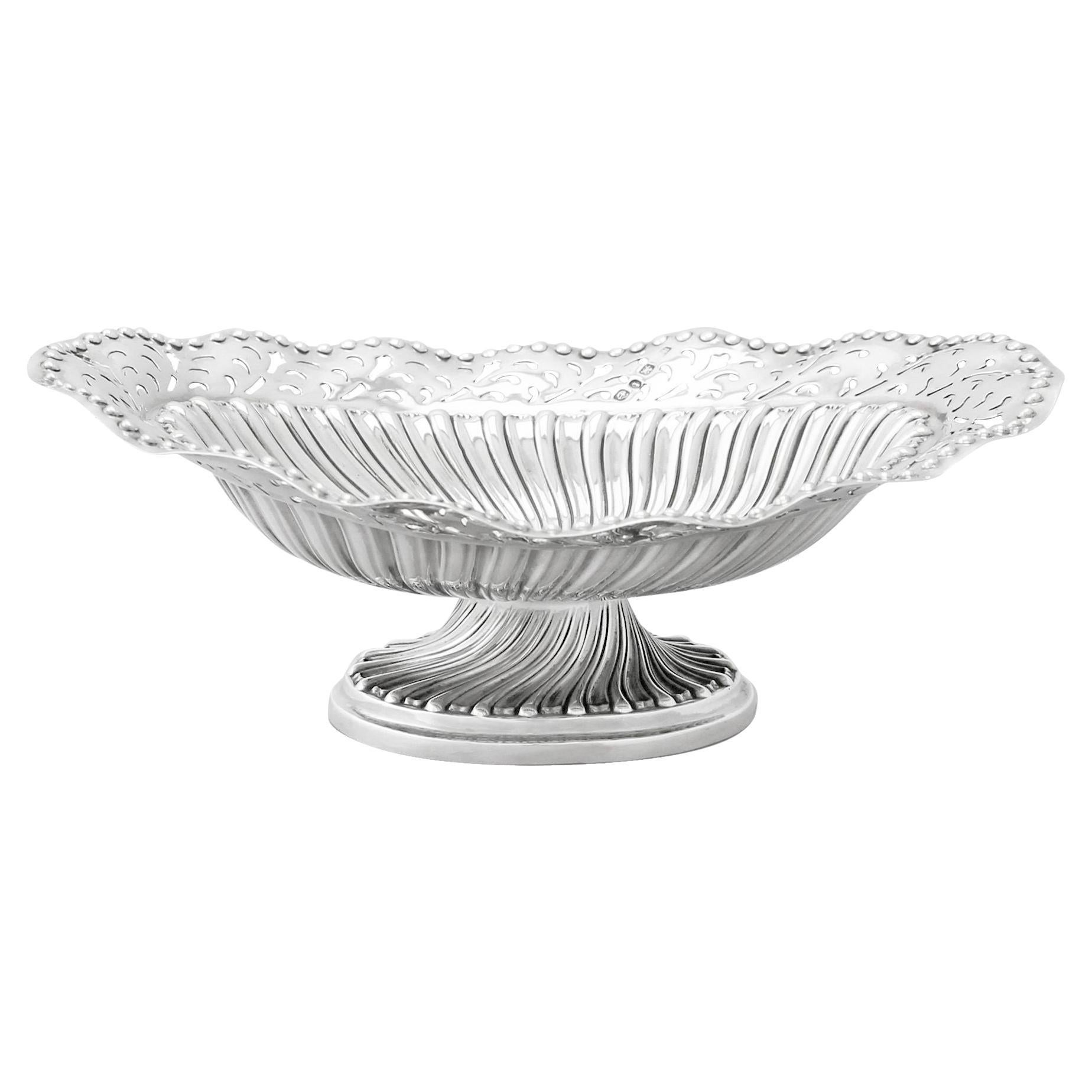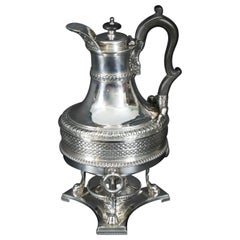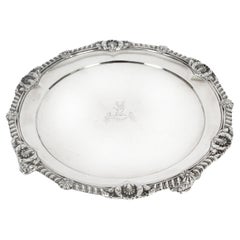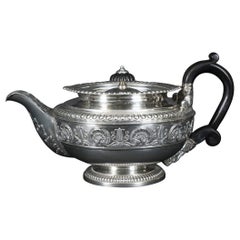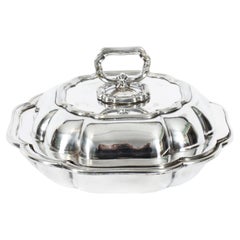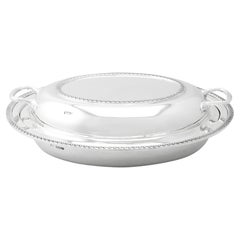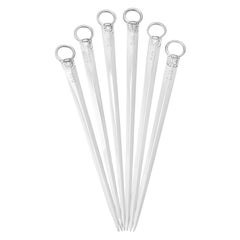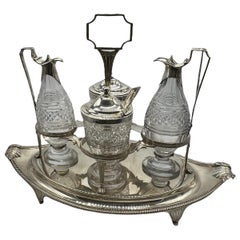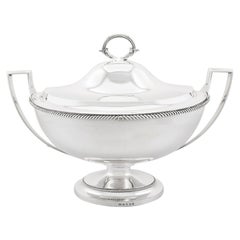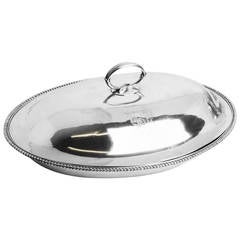
Antique Paul Storr Sterling Silver Entree Dish 1796
View Similar Items
Want more images or videos?
Request additional images or videos from the seller
1 of 5
Antique Paul Storr Sterling Silver Entree Dish 1796
About the Item
- Dimensions:Height: 5.12 in (13 cm)Width: 12.6 in (32 cm)Depth: 8.67 in (22 cm)
- Place of Origin:
- Period:
- Date of Manufacture:1796
- Condition:
- Seller Location:London, GB
- Reference Number:Seller: 064591stDibs: LU95062221912
About the Seller
5.0
Platinum Seller
Premium sellers with a 4.7+ rating and 24-hour response times
Established in 1983
1stDibs seller since 2012
1,351 sales on 1stDibs
Typical response time: 1 hour
Associations
LAPADA - The Association of Arts & Antiques Dealers
Authenticity Guarantee
In the unlikely event there’s an issue with an item’s authenticity, contact us within 1 year for a full refund. DetailsMoney-Back Guarantee
If your item is not as described, is damaged in transit, or does not arrive, contact us within 7 days for a full refund. Details24-Hour Cancellation
You have a 24-hour grace period in which to reconsider your purchase, with no questions asked.Vetted Professional Sellers
Our world-class sellers must adhere to strict standards for service and quality, maintaining the integrity of our listings.Price-Match Guarantee
If you find that a seller listed the same item for a lower price elsewhere, we’ll match it.Trusted Global Delivery
Our best-in-class carrier network provides specialized shipping options worldwide, including custom delivery.More From This Seller
View AllAntique Paul Storr Sterling Silver Coffee Biggin on Stand 1809 19th Century
By Paul Storr
Located in London, GB
This is a wonderful and rare English George III antique sterling silver coffee pot on stand by the world famous silversmith Paul Storr.
It...
Category
Antique Early 1800s English George III Platters and Serveware
Materials
Silver
Antique George III Sterling Silver Salver by Paul Storr 1811 19th Century
By Paul Storr
Located in London, GB
This is a wonderful English antique George III sterling silver 10 inch salver, by the world famous silversmith Paul Storr.
It has clear hallmarks for London 1811 and the makers mark of Paul Storr.
It is typical of his work with the raised gadrooned rim with anthemion at intervals, on four fabulous foliate bracket feet. The salver is engraved with a crest and motto and the underside is later engraved
Charlotte J. Parke from C. J. Parke, March 1893'
The centre is engraved with a crest above a motto 'True and Fast' and I have researched this crest:
The Crest of Parke
The crest as engraved upon this George III English Sterling Silver Footed Salver by Paul Storr hallmarked London 1811 is that of the family of Parke. It may be blazoned as follows:
Crest: A stag’s head couped sable holding in the mouth a key or
Motto: True and fast
The family of Parke originally hailed from the County of Cumberland in the northeast of England1 later settling in the County of Dorset at Henbury House, Sturminster Marshal, near Wimborne. Given the evidence of the inscription found on the underside of the salver ‘Charlotte J. Parke from C. J. Parke, March 1893’ it was undoubtedly at one time in the possession of Charles Joseph Parke (died 9th March 1893) of Henbury House aforesaid and gifted to Charlotte Josephine Parke (baptised 4th January 1857 died 2nd January 1941) his third daughter by his wife, Ellen Mary Ethelston. I would venture the following hypothesis that the salver was bequeathed to Charlotte in her father’s will that was granted probate at London on the 20th May 1893. The ‘March 1893’ of the inscription acts as a remembrance of the month of the death of her father. It was noted that Charlotte’s father left an estate worth some £66,892, 19 shillings and one pence, a very considerable sum in the last decade of the 19th Century and even thereafter. Charlotte never married and was living at the time of her death at The Coppice, Sixpenny Handley in the County of Dorset. Her will was proved for probate at Llandudno on the 25th March 1941. She left an estate worth £18,866, 10 shillings and 4 pence. Again, a comfortable sum in 1941.
See the photo of Henbury House, Sturminster Marshal, near Wimborne, Co. Dorset. The former seat of the Parke family. The house was destroyed by fire, the remains of which were demolished in the 1990's.
There is no mistaking its unique quality and design, which is sure to make it a treasured piece by any discerning collector.
Condition:
In excellent condition with clear hallmarks and no dings, dents or signs of repair. Please see photos for confirmation.
Dimensions in cm:
Height 2 x Width 26.5 x Depth 26.5
Weight 0.69 kg
Dimensions in inches:
Height 1 inch x Width 10 inches x Depth 10 inches
Weight 1.5 lbs
Paul Storr
born in London England in 1771, was to become one of the most talented silversmiths of the nineteenth century. Today his legacy of exceptionally well crafted silver, found worldwide in museums and private collections, leaves one in awe when compared to that of his contemporaries.After having served a seven year apprenticeship from the age of 14, he began his career in 1792 when he went into a brief partnership with William Frisbee. This did not last and in 1793 a new mark, (his initials ‘P S’) was entered. By the beginning of the nineteenth century he had established himself as one of London’s top silversmiths producing, amongst others, commissions for Royalty.
In 1801 he married Elizabeth Susanna Beyer with whom he was to have ten children. In 1807 Paul Storr entered into a working relationship with Philip Rundell and by 1811 was a partner, and managing the workshops for Rundell, Bridge & Rundell.
During this period he kept his own marks and separate workshop. However it was through Rundell, Bridge & Rundell who were appointed Goldsmith in Ordinary to George III in 1804 that his reputation as a master silversmith grew. His talents lay in being able to transform ideas and designs from Rundell, Bridge & Rundell’s designers, William Theed...
Category
Antique 1810s English George III Sterling Silver
Materials
Sterling Silver
Antique Rare Georgian Sterling Silver Teapot by Paul Storr 1812 19th Century
By Paul Storr
Located in London, GB
This is an exceptional and very rare antique English George III sterling silver teapot by the world famous silversmith, Paul Storr, 1810 in date.
This splendid teapot is of a deligh...
Category
Antique 1810s English George III Platters and Serveware
Materials
Silver
Antique Silver Plated Entree Dish Asprey London 19th Century
By Charles & George Asprey
Located in London, GB
This is an exquisite and rare antique English silver plated entree dish by the world renowned retailser Asprey, of London circa 1870 in date.
The entree dish features a square shaped body with elegant fluted decoration to the dish, lid and handle.
In excellent condition, this wonderful entree dish is ready to grace your dining table.
Condition:
In excellent condition. As an antique items, the piece shows signs of use commensurate with age, these minor condition issues are mentioned for accuracy and, as seen in the accompanying photographs, it displays beautifully.
Dimensions in cm:
Height 16 cm x Width 26 cm x Depth 26 cm
Dimensions in inches:
Height 6 inches x Width 10 inches x Depth 10 inches
Asprey was established in England in 1781 and founded as a silk printing business by William Asprey, it soon became a luxury emporium. In 1841, William Asprey's elder son Charles went into partnership with a stationer located on London's Bond Street. In 1847 the family broke with this partner and moved into 167 New Bond Street, the premises Asprey occupies today.
From its central London location Asprey advertised 'articles of exclusive design and high quality, whether for personal adornment or personal accompaniment and to endow with richness and beauty the table and homes of people of refinement and discernment.' An early speciality was dressing cases. Asprey crafted traditional cases and designs, mostly in leather, suitable for the new style of travel ushered in by railways. The main competitors at the time were H.J. Cave & Sons. Asprey was recognised for its expertise when it won a gold medal for its dressing cases at the International Exhibition of 1862 but lost out to its rivals, H.J. Cave & Sons in 1867.
The company consolidated its position through acquisitions. In 1859 Asprey absorbed Edwards, an award winning maker of dressing cases and holder of a Royal Warrant. The company also purchased the Alfred Club at 22 Albemarle Street, which backed on to the New Bond Street store and meant that Asprey now had entrances on two of London's most fashionable streets.
In 1862, Asprey was granted a Royal Warrant by Queen Victoria. The Prince of Wales, later to be crowned Edward VII, granted another Royal Warrant. In 1953, for the coronation of Elizabeth II, Asprey paid homage with the Asprey Coronation Year Gold Collection, which featured a dessert, coffee and liqueur service in 18-carat gold and weighed almost 27 pounds. In April 1953, it went on show in the New Bond Street store and subsequently toured the United States.
As the business grew, the company acquired manufacturing facilities and hired silversmiths, goldsmiths, jewellers and watchmakers including Ernest Betjeman, the father of the distinguished poet John Betjeman, one of the most highly regarded craftsman and designers of his day.
In the twenties, commissions poured in from around the world, from American millionaire J. Pierpont Morgan to potentates such as the Maharaja of Patiala, who commissioned a huge teak travelling trunk for each of his wives in which each trunk was fitted with solid silver washing and bathing utensils with waterspouts of ornate tiger head and lined with blue velvet. Asprey cigarette cases...
Category
Antique 19th Century English Serving Pieces
Materials
Silver Plate
Italian Pietra Dura Mounted Brass and Alabaster Comport Dish, 19th Century
Located in London, GB
This is a superb quality antique Italian Pietra Dura mounted, gilt brass and alabaster table-centre comport dish, dating from the late 19th century.
With striking pierced Neo-Gothic chased brass mounts this splendid alabaster dish is set with six highly decorative pietra dura roundels depicting various floral decoration.
It is raised on a sturdy circular brass base.
It is a sumptuous piece which will make a great statement in any special room.
Condition:
In really excellent condition, please see photos for confirmation.
Dimensions in cm:
Height 8 x width 29 x depth 29
Dimensions in inches:
Height 3.1 x width 11.4 x depth 11.4
Pietra Dura is a term for the inlay technique of using cut and fitted, highly polished colored stones to create images. It is considered a decorative art.
Pietre dure is an Italian plural meaning "hard rocks" or hardstones; the singular pietra dura is also encountered in Italian. In Italian, but not in English, the term embraces all gem engraving and hardstone carving, which is the artistic carving of three-dimensional objects in semi-precious stone, normally from a single piece, for example in Chinese jade.
The traditional convention in English has been to use the singular pietra dura just to denote multi-colored inlay work. However, in recent years there has been a trend to use pietre dure as a term for the same thing, but not for all of the techniques it covers, in Italian.
But the title of a 2008 exhibition at the Metropolitan Museum of Art, New York, Art of the Royal Court: Treasures in Pietre Dure from the Palaces of Europe used the full Italian sense of the term, probably because they thought that it had greater brand recognition. The material on the website speaks of objects such as a vase in lapis lazuli as being examples of "hardstone carving (pietre dure)"
The Victoria & Albert Museum in London uses both versions on its website, but uses pietra dura. "A method of inlaying colored marbles or semi-precious stones into a stone base, often in geometric or flower patterns...."
Giovanni Montelatici...
Category
Antique 1890s Italian More Dining and Entertaining
Materials
Alabaster, Brass
Antique Entree Dish William Hutton & Sons 19th Century
By William Hutton & Sons
Located in London, GB
This is an exquisite and rare antique English silver plated entree dish, bearing the cross arrow mark of William Hutton & Sons, circa 1850 in date.
The entree dish features a rec...
Category
Antique 1850s English Sheffield and Silverplate
Materials
Silver Plate
You May Also Like
Antique English Sterling Silver Entrée Dish
By Emile Viner
Located in Jesmond, Newcastle Upon Tyne
An exceptional, fine and impressive antique George V English sterling silver entree dish; an addition to our ornamental dining silverware c...
Category
Vintage 1930s English Other Sterling Silver
Materials
Silver, Sterling Silver
$2,731 / set
Paul Storr Antique Set of Six Sterling Silver Meat Skewers
By Paul Storr
Located in Jesmond, Newcastle Upon Tyne
A magnificent, fine and impressive set of six antique George III English sterling silver meat skewers or letter openers made by Paul Storr, an addition to our diverse flatware collection.
These magnificent antique George IV English sterling silver meat skewers or letter openers has a plain tapered form.
This exceptional set is comprised of three pairs of meat skewers, each pair graduating in size.
Each skewer is ornamented with the contemporary bright cut engraved crest below a baron's coronet.
The terminal of each skewer is embellished with a chased decorated shell design below a reed decorated circular ring loop finger piece.
Sets of six graduated antique silver skewers are difficult to locate, especially those by the renowned and important London silversmith Paul Storr.
The original use of this item was purely as a game/meat skewer. Due to its form, this piece may certainly be used as an effective letter openers
Condition
These antique silver meat skewers...
Category
Antique 1810s British Sterling Silver
Materials
Silver, Sterling Silver
Sterling Silver and Cut-Glass Cruet Set by Paul Storr, Early 1800s
By Paul Storr
Located in North Miami, FL
Sterling silver and cut-glass cruet set by Paul Storr. A pair of cruets and two footed condiment jars, crafted of finely cut glass mounted in silver, are held securely on a distincti...
Category
Antique Early 18th Century English Neoclassical Sterling Silver
Materials
Sterling Silver
$14,040 Sale Price / set
20% Off
Paul Storr Antique Georgian Sterling Silver Soup Tureen Dish
By Paul Storr
Located in Jesmond, Newcastle Upon Tyne
A magnificent, fine and impressive, large antique Georgian English sterling silver soup tureen made by Paul Storr in the Adams style, an addition to our range of collectable dining silverware.
This magnificent antique George III sterling silver soup tureen has a plain oval shaped form onto a plain oval spreading pedestal foot to a collet rim, in the classic English Adam style.
The surface of this impressive soup tureen is plain and unembellished.
The upper rim of the tureen is ornamented with an impressive applied rope twist border accented with a simple leaf design to either side.
This antique soup tureen...
Category
Antique Early 19th Century English Adam Style Soup Tureens
Materials
Silver, Sterling Silver
Henry Clifford Davis Antique Sterling Silver Bread Dish
By Henry Clifford Davis
Located in Jesmond, Newcastle Upon Tyne
An exceptional, fine and impressive antique George VI English sterling silver bread dish in the Art Deco style; an addition to our range of ornamental silverware.
This exceptional...
Category
Vintage 1930s English Art Deco Serving Pieces
Materials
Silver, Sterling Silver
Georgian Sterling Silver Cake Basket, London 1796, Possibly Thomas Chawner
Located in Toronto, Ontario
Georgian silver cake basket, London 1796, poss Thomas Chawner. The oval shaped basket with pedestal reed base, border pierced surround, upper section with outer reed design border an...
Category
Antique 18th Century English Georgian Sterling Silver
Materials
Sterling Silver
$2,750 Sale Price
21% Off
Recently Viewed
View AllMore Ways To Browse
Antique Furniture Wiltshire
Eagles Head Mark P A
Antique Furniture Farnham
Ballard Used Furniture
Dior Sable Coat
Sable Coat 14
Ballard Designs Furniture
Ballard Designs
Paul Storr Entree
Lauffer Norway
Lavender Hill Mob Movie Poster
Laverne Bathers
Laverne Chan Cabinet
Laverne Drink Table
Laverne Oval Coffee Table
Lavorazione Artigiana
Lay Down Perfume
Le Bihan
